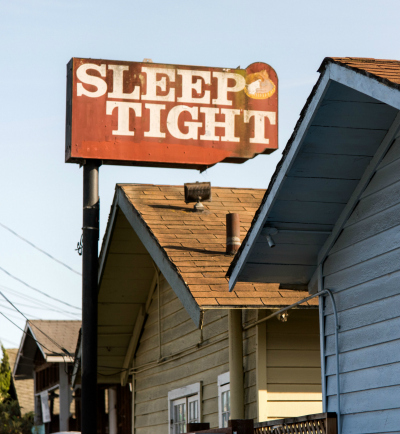Campus News
Student research project looks at affordable housing crisis in Santa Cruz
A UC Santa Cruz multi-media research project on the affordable housing crisis in Santa Cruz is scheduled to be presented to the public 7-9 p.m. Thursday, Oct. 13 at the Museum of Art and History in Santa Cruz.



A UC Santa Cruz multi-media research project on the affordable housing crisis in Santa Cruz is scheduled to be presented to the public 7-9 p.m. Thursday, Oct. 13 at the Museum of Art and History in Santa Cruz. The event is free and open to the public.
Called “No Place Like Home” and led by sociology professors Miriam Greenberg and Steve McKay, the study grew out of “Working for Dignity,” McKay’s previous study of low-wage workers in Santa Cruz County. McKay said No Place Like Home will showcase findings from surveys of residents regarding housing in Santa Cruz, one of the most expensive areas in the country.
“We will exhibit art work and new digital tools focusing on how local residents experience the housing crisis, as well as release preliminary results from a large-scale survey and interview project,” McKay said.
The study is the latest in on-going research funded by the UC Humanities Research Initiative and is an extension of Working for Dignity conducted by the Center for Labor Studies, the Critical Sustainabilities Project, and the Chicano Latino Research Center.
Fifty-four UCSC students, working in coordination with Community Bridges, and other local community organizations, worked on the project. Forty fanned out over seven weeks in spring quarter to talk to residents in the Beach Flats, lower Ocean Street, and lower Pacific Avenue neighborhoods of Santa Cruz. McKay said many of the students are native Spanish speakers and conducted the door-to-door surveys in Spanish, focusing on neighborhoods that are typically undercounted.
“The quality of the data is better,” McKay said.
Students used digital tablets and open-source software to collect and analyze the data. A total of 480 surveys were completed. Additionally, students returned for in-depth interviews with 29 residents. They took photos, designed maps, and created web sites to display the research results.
At the Oct. 13 event, students and community members will share stories, testimonies, and art work about creating a sense of “home” during a housing crisis. It will also include a discussion about issues facing renters in the community and look at possible steps forward.
“It’s a great way to bring together students who are renters and the rest of Santa Cruz to address the housing crisis,” McKay said.
In winter quarter, McKay’s students will expand the project to Live Oak, and in spring to Watsonville, in order to build a database documenting the housing situation facing lower-income residents countywide.